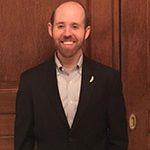 I am both a patient with multiple chronic conditions and a patient advocate. What some members of my care team(s) often forget is that I also have a life outside of the little bubble in which they see me. I have had 3 kidney transplants, been on dialysis twice (both hemo and peritoneal), and was recently diagnosed with either Crohn’s or ulcerative colitis. (The docs do not seem to know yet which one. Given my eastern European background, I believe it is Crohn’s.) While I have two other chronic conditions, I will not discuss them in this newsletter.
I am both a patient with multiple chronic conditions and a patient advocate. What some members of my care team(s) often forget is that I also have a life outside of the little bubble in which they see me. I have had 3 kidney transplants, been on dialysis twice (both hemo and peritoneal), and was recently diagnosed with either Crohn’s or ulcerative colitis. (The docs do not seem to know yet which one. Given my eastern European background, I believe it is Crohn’s.) While I have two other chronic conditions, I will not discuss them in this newsletter.
The concepts of relationship-centered care (RCC) and empathy in the world of healthcare are great ideas! You do not need me to tell you that, but what you might find interesting is that I believe some of my medical practitioners have followed these principles for my entire lifetime. They may not have used the specific words, but they definitely showed a great deal of empathy. I also need to make a brief distinction here – I am someone who has gone from the pediatric world to the world of adult care. While I have felt and seen these principles observed as a pediatric, adolescent, and young adult, I often fail to see these principles observed as an adult patient.
I receive great care from the University of Pennsylvania, Jefferson Health System, and New York Presbyterian. However, there is little or no communication among the institutions (even though I know for a fact that two of them use the same electronic record, EPIC). Most of my physicians are at Penn, where they are all able to read about me in my patient record, but it seems only a few have also developed a personal relationship with me. And I must say this – each one is highly recognized in their respective fields, but each one manages to make me feel like their friend and not just a patient. Some of the physicians and medical professionals reading this newsletter might think that’s a bad thing, but I believe it’s what sets them apart from the rest. They go that extra mile – to call me late at night, to message me back, and more importantly – they smile and listen when I am with them. They truly embody relationship-centered care. I have a specialist who has followed me for 16 years at New York Presbyterian. While I only see him once or twice a year, we remain close. He is a mentor to me. What all three of these physicians have in common is they show true feelings of empathy, and they remember me – the person.
I wish my care team(s) all cared enough to try to develop that personal connection with me, to show that relationship-centered care means more than just responding to a message over the portal within 48 hours. And I hope that the word empathy does not lose its meaning entirely. I am 35 years old, and I truly hope that going forward the next generation of medical professionals will learn to embrace the central principle of relationship-centered care and empathy: to truly empathize with a patient one must treat the patient as a person.
With all that said, I certainly do not expect that every medical professional will become “friends” with all his/her patients. It may not be appropriate in every situation but is definitely ideal for chronic patients. While we, as patients, expect and want empathy from the medical community, relationships work both ways and we must remember to empathize with our medical professionals. I am keenly aware that the burden of relationship-centered and patient-centered care tends to fall on the shoulders of the physician or other the medical professionals interacting with the patient. Most medical professionals are overwhelmed with an extraordinary number of patients and the burden of complying with their administrative responsibilities (i.e. billing, maintaining an accurate and updated electronic record). We must understand that these professionals have lives outside of their respective professions. Too often I hear patients complain that they did not get a call back from a doctor or nurse or the person on call. Or perhaps that call came slightly later than anticipated. I do my best as a patient to understand and empathize with the balance of professional and personal lives that these folks try to maintain. I know for a fact that my transplant surgeon does not see his family as often as he would like, but I also know he deeply cares about his patients (both new and old). So I would recommend that patients take a step back as well, and that each person in their role as family member or caregiver also learn to empathize. Relationships are fragile, and we must each do our part, particularly when there is so much at risk.

